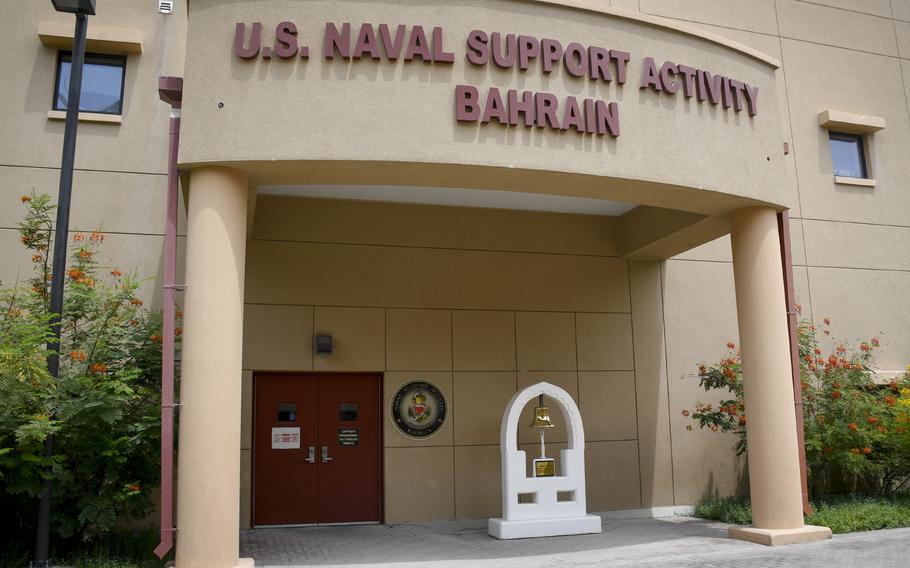
Naval Support Activity Bahrain is home to U.S. Naval Forces Central Command and U.S. 5th Fleet. The Navy this week announced an agreement with Bahrain that will let U.S. military family members living there work on the local economy. (J.P. Lawrence/Stars and Stripes)
U.S. military spouses and other dependents living in Bahrain now can work within the local economy without being forced to give up their status of forces agreement visas, the Navy announced this week.
An agreement with Bahrain finalized Sunday also means that U.S. military family members who want to work for a local employer no longer have to leave the country to get a job, then obtain a residence visa and a work permit before moving back, U.S. 5th Fleet said in a statement Monday.
Through the pact, local businesses that want to hire a dependent of a U.S. service member or DOD civilian can request a work permit from a Bahraini government agency responsible for reviewing all requests, 5th Fleet spokesman Cmdr. Timothy Hawkins said.
Those dependents would be required to have their pay deposited directly into a local bank account, according to information on the fleet’s website. They wouldn’t pay income taxes to Bahrain but likely would be subject to U.S. tax laws, government officials say.
It’s unclear how many Americans would take advantage of the change or what jobs might be available to them in the predominantly Arabic-speaking country.
U.S. military spouses and family members in Bahrain already may work remotely without giving up their DOD-related visas.
Naval Support Activity Bahrain, home to U.S. Naval Forces Central Command and 5th Fleet, plays an important role in national security in the Middle East.
About 1,200 U.S. military dependents live in Bahrain, roughly half of whom are of employment age, Hawkins said.
The change addresses a significant sticking point for many overseas military spouses and dependents who often are forced to choose between their careers and keeping privileges and protections afforded through their DOD-dependent status.
For example, military dependents living in Italy must give up their DOD-related visas if they want to work anywhere but on base. And in contrast with Germany and some other countries, Italy’s interpretation of an agreement related to U.S. military forces in the country bars remote work for an American employer.
NSA Bahrain officials say the agreement offers military dependents, such as those employed in fields that aren’t compatible with remote work, another path to maintaining employment during an overseas assignment.
“This is about taking care of our families,” said Vice Adm. Brad Cooper, commander of U.S. Naval Forces Central Command, U.S. 5th Fleet and Combined Maritime Forces.